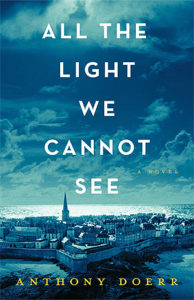It’s almost summer, and you may be thinking of things like vacation, gardening, flip flops, or increased burglaries… or summer reading? You have probably dusted off your window fans (if you live in Vermont), or turned down your central air conditioning to below 70 if you are below the Mason Dixon line. But not me.
The window fans are still in the basement, and I don’t actually know where the Mason Dixon line is, but I do know that it is nearing summer and the magical tables are out at the bookstore that look like CANDY to me: Summer Reading.
Here are some good ones I’ve read this year. Tell me, what are your favorites?
Positive Discipline, Jane Nelsen
Considered a classic, this parenting book has been a launching pad for 25 years of positive parenting strategies with years of clinical trials backing it up. Touching on mutual respect, family belonging, and cooperation, Nelson’s approach to discipline focuses on positive reinforcement over punishment, implementing strategies like diffusing power struggles, encouragement, avoiding the overuse of praise, focusing on strengths, and personal accountability. This book has been like a wise aunt to me, reminding me what I know but often forget – that relationship is primary, and ultimately this is what I aim to preserve and foster as I’m guiding my kids into adulthood.
This book has been like a wise aunt to me, reminding me what I know but often forget – that relationship is primary, and ultimately this is what I aim to preserve and foster as I’m guiding my kids into adulthood.
Peter Pan, J.M Barrie
I’m sure you’ve seen Disney’s version, and it’s a really great version. I picked up this book intending to read it with my then 5 year old, but quickly decided it was much more my speed than his. Barrie’s Peter Pan is a boastful, selfish, careless boy, often recklessly insubordinate. This tale is darker in its allusions (how Peter left his nursery as an infant and then came back to a closed window, assuming his parents didn’t want him anymore), reveals his difficulty in remaining childish (the need to forget things he learns about life so he can stay a boy and never grow up), and has several themes of death (when children die, Peter accompanies them part of the way to their destination so they won’t be afraid.)
I found this little book so intriguing, darkly whimsical, and surprisingly layered compared to the story we all know and love.
It’s also fun to read – Barrie’s language can be understood from both sides of a glass, both childishly smart, and too smart for children.
My Brilliant Friend, Elena Ferrante
I folded right up into this story, the first in a 4-book series about friendship, nationhood, and transformation. Often stark and wonderfully honest, this is a story of two childhood friends, Elena and Lila, growing up on the rough streets of Naples in the 1950s. Being born into the same disadvantage, the two girls grow down divergent paths, both held back by the vice grip of generational poverty, education, and familial responsibility.
A great commentary on girlhood and all the insecurities and exertions we remember, I sometimes felt exposed reading some of my most unstated adolescent feelings on paper.
For the Love, Jen Hatmaker
This one is such a soul lightening read. So, so funny, Jen Hatmaker writes to women about “fighting for grace in a world of impossible standards.” She talks about a balance beam and encourages women to think of things in terms of on or off “the beam.” Understand yourself and what you can say yes and no to. Start with things that are immovable priorities, like maybe your marriage, time with children, your health routine. On the beam. Add your book club, the night you volunteer at the shelter. On the beam. Maybe you’ve said yes to some good things, but they’ve become burdensome and you are hanging on because of guilt or others’ expectation. PTO treasurer, Sunday School teacher. Off the beam. Always the one to organize the meal train, accepts phone calls in the middle of the night. Off the beam.
It’s a book about living freely in your created giftedness, and shamelessly rejecting the world’s often unrealistic standards. Love.
All the Light We Cannot See, Anthony Doerr
I think this is my favorite book I’ve read all year.
The language of this book is like poetry.
It’s the story of a blind French girl and an orphaned German boy, both growing up miles apart during World War II. Through parallel narratives, their paths cross at a crucial juncture as they realize they are connected in more ways than they imagine. It’s sad, sometimes brutal, but the thread of humanity runs poignantly throughout, asking tough questions about survival, courage, and the capacity to risk oneself for the good of others. Oh, it’s a good one.













